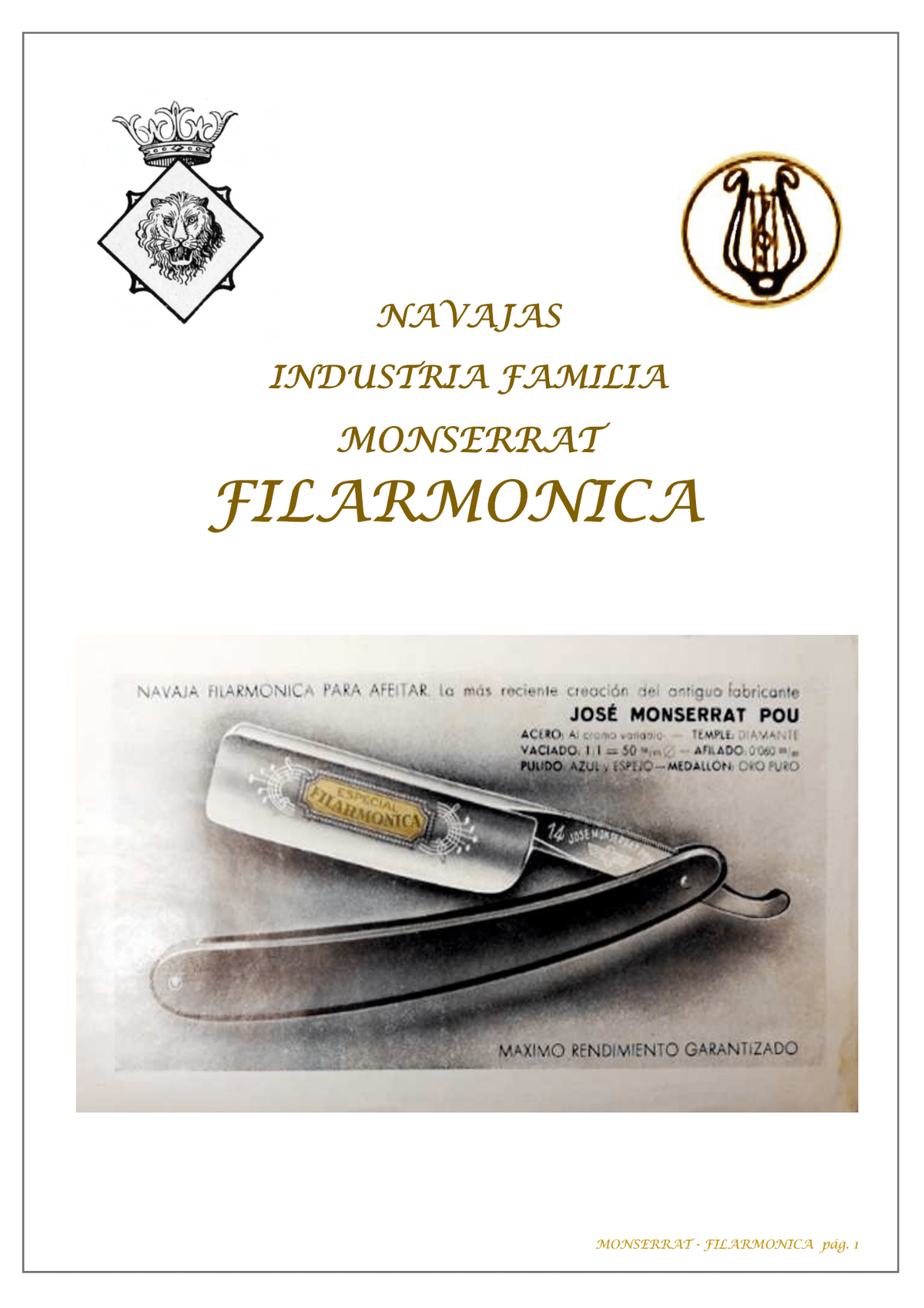Steve56
Ask me about shaving naked!
Not kidding! Think about it.
It's not the worst theory I've heard, just caught me off guard.Not kidding! Think about it.
You know, the other part of this that gets forgotten is that JMP was in business for a *long* time. It would be silly to assume that his sourcing and production stayed exactly the same over the course of 60 years.
A member of a Spanish forum has made a recompilation about the Filarmónica razors information found on the net.

If I'm not allowed to share the link, please delete the post.
I will try to get more information about it.I think you will find we are not disputing who was selling them, the argument is who was making them, there are hundreds of companies who sell and own a brand but don't make them, Korrat is a brand, but all his blanks are made in Germany.
Fantastic pdf...thank you for sharing.A member of a Spanish forum has made a recompilation about the Filarmónica razors information found on the net.

If I'm not allowed to share the link, please delete the post.
I am very sorry, but that statement is only half right. Yes, hardly any straight-razor making tradition prior to the XXth century, but you really need to have lived under a rock not to have heard about Toledo steel, very appreciated throughout the centuries.as Spain has no real history of making razors or producing steel,
I am very sorry, but that statement is only half right. Yes, hardly any straight-razor making tradition prior to the XXth century, but you really need to have lived under a rock not to have heard about Toledo steel, very appreciated throughout the centuries.
Even during the XXth century, the Northern Coast of the country, particularly the Basque Country used to be littered with steel factories. Stating that Spain had no history of producing steel is just misinformation, at best.
Haha, fair enough..... You can choose to take a stance against history, it's your right.I have traveled widely throughout Spain since the 1960s, my Grandmother had a holiday home in Barcelona for many years which I regularly visited, I also stayed many times in the Basque country my favorite little fishing just down the coast of Santander the village of San Vincente La Barquera, and I'm of the opinion that Spain has never been a country that produces steel or blades in numbers or quality worth mentioning, nothing you can say will change my opinion on that. PS although they do make exceptionally good Paella.
I had seen that before but I hadn't read it very carefully. Some interesting things stand out, some speculative and some definitive.A member of a Spanish forum has made a recompilation about the Filarmónica razors information found on the net.

If I'm not allowed to share the link, please delete the post.
I am sorry, but in the 60s, the single most important company of Spain was AHV, a basque metallurgy company (there were more, of course). You say you stayed many times in the basque country. Well in the 60s, again around 50% of the basque people worked for metallurgic or metallurgic related companies (including my old man).I have traveled widely throughout Spain since the 1960s, my Grandmother had a holiday home in Barcelona for many years which I regularly visited, I also stayed many times in the Basque country my favorite little fishing just down the coast of Santander the village of San Vincente La Barquera, and I'm of the opinion that Spain has never been a country that produces steel or blades in numbers or quality worth mentioning, nothing you can say will change my opinion on that. PS although they do make exceptionally good Paella.
I am sorry, but in the 60s, the single most important company of Spain was AHV, a basque metallurgy company (there were more, of course). You say you stayed many times in the basque country. Well in the 60s, again around 50% of the basque people worked for metallurgic or metallurgic related companies (including my old man).
You also mentioned being in Cantabria. Peña cabarga and Cabarceno (you know it as a "nature" park if you have been there in recent times) were already under iron extraction at the time when Roman empire reached that part of the world.
You are of course free to stand wrong. I just want to add some info (real info) so others can have a bit of extra information from someone born in the area you claim to "know" by visiting.
What I have no idea is about the origin of Filarmonica blanks, but there was plenty of steel available of national origin.
Have a terrific day.
Well I cannot imagine why many of the old Solingen German grinders would say all 14 blanks were made by them including the Filarmonica blanks if they were not, I'm not going to turn this into a game of Tennis your serve next, I'm of a completely different opinion and for me all roads lead back to Germany, but I have absolutely no issues with your beliefs or opinion.
Superb document and if I have time I'll attempt to translate this for non Spanish speaking/reading members here.A member of a Spanish forum has made a recompilation about the Filarmónica razors information found on the net.

If I'm not allowed to share the link, please delete the post.